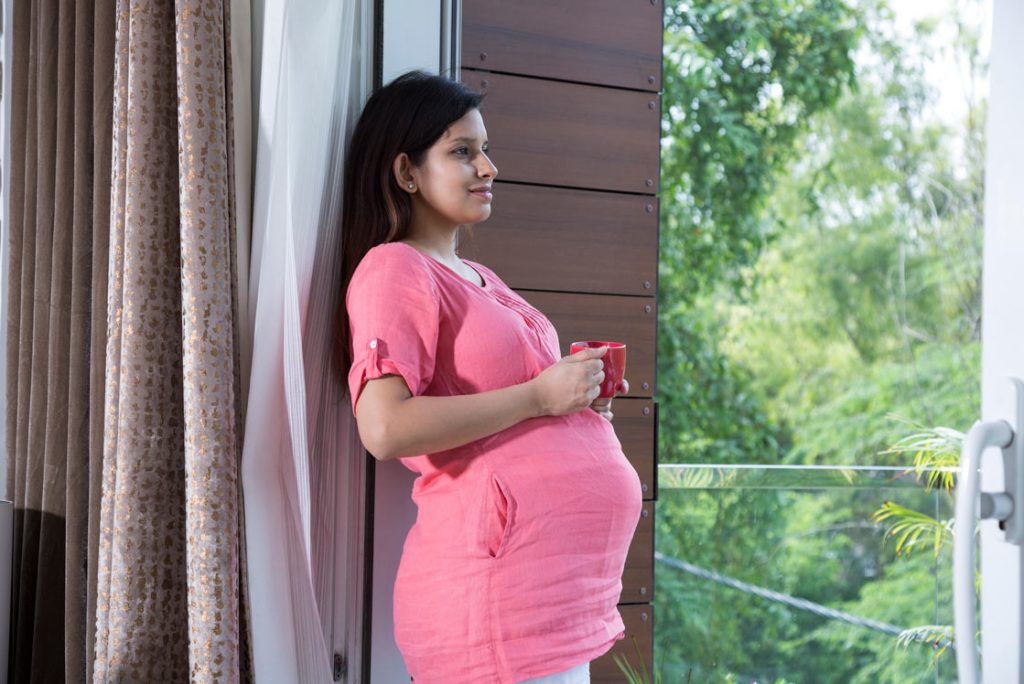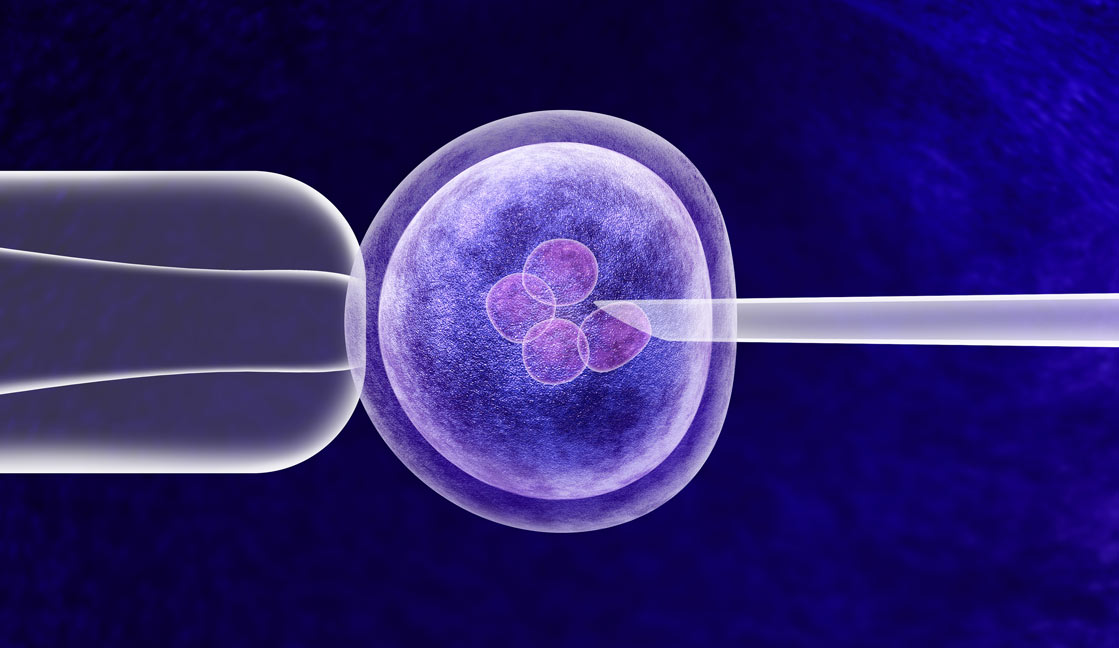It’s common for women who are new to fertility treatment to wonder if there are IVF pregnancy risks. If you have struggled to conceive, you’ll probably be considering fertility treatments but you’ll of course want to know about safety and effectiveness.
Here at The Fertility and Gynaecology Academy, common questions we get in initial consultations include: Are IVF pregnancies healthy? Is an IVF pregnancy high risk? Is IVF pregnancy equal to normal pregnancy? Read on for a breakdown.
First things first: What’s the IVF process?
IVF is the process of fertilising an egg and sperm in the laboratory (in-vitro) before placing the embryo into a woman’s uterus to grow and develop. It is usually the fertility treatment of choice for women and couples with fertility problems.
The IVF process generally involves these steps:
- Blood testing and scanning to ensure the woman is in a good place with satisfactory health to undergo IVF.
- Controlling and stimulating ovulation with hormone medicines to produce more eggs than the usual one in a normal ovulation cycle. Fertility doctors will tend to aim for about 8-12 eggs, to offer the best chance of having several high-quality eggs to choose from.
- Monitoring your response to the medication and adjusting doses accordingly. You’ll have scans and blood tests to assess how your ovaries are responding to the medicine and if necessary, doses will be tweaked.
- Final ‘trigger’ injection to mature your eggs before the egg retrieval.
- Egg retrieval is a surgical procedure under sedation. You will be able to go home that day.
- Semen production from the male partner, preferably at the clinic.
- Egg fertilisation in the laboratory, whereby the eggs and sperm are expertly mixed and left to fertilise and embryos to divide and progress, normally for 2-5 days. Only the viable good quality embryo(s) will be selected for implantation.
- Embryo transfer – this is generally a very straightforward procedure requiring no anaesthetic, in which the embryo(s) are carefully put into your womb using a catheter passed through the vagina and cervix.
You can read a detailed step by step guide to the IVF process here.
Are there any IVF pregnancy risks?
When performed at a good quality UK clinic, IVF is generally incredibly safe. However, every medical treatment – without exception – has some potential risks and side effects. Most side effects or risks will be nothing to worry about, but it helps to know what they are so you can look out for any problems:
Side effects from the hormone medicine
While these are not IVF pregnancy risks as such because they can occur before pregnancy, many women will experience some mild side effects from the hormone medicine such as:
- Hot flashes
- Headaches
- Feeling grouchy, low, or anxious
Ovarian hyperstimulation syndrome (OHSS):
This is not an IVF pregnancy risk per se, but a rare IVF complication that occurs in women who are unusually sensitive to the hormone medicines employed to stimulate egg production. In cases of OHSS, the ovaries over-produce eggs, and these eggs become oversized and painful. Symptoms of OHSS include:
- Throwing up or feeling nauseous
- Diarrhoea
- Breathlessness
- Pain and bloating in the lower abdomen
- Lightheadedness
OHSS is rare and many cases will be mild, but severe cases can be dangerous. If you notice any of these symptoms, get in touch with your clinic. You might need to stop the treatment before beginning again with a lower dose of fertility medication.
Multiple births
If more than one fertilised egg is put into the uterus in IVF, there’s a greater risk of twins or triplets. While the prospect of an extra baby or two may be welcome in the minds of the parents, a multiple pregnancy increases the risk of pregnancy complications, for example:
- High blood pressure
- Pre-eclampsia (a condition creating high blood-pressure during pregnancy that can put strain on the organs, affecting mother and baby)
- Miscarriage
- Anaemia (a deficiency of red blood cells that can create symptoms such as fatigue)
- Gestational diabetes (diabetes during pregnancy, creating high blood sugar and requiring extra care in terms of eating well and getting enough rest. You will be more closely monitored too, because sometimes babies born to mothers with gestational diabetes can have issues such as a high birth weight. Gestational diabetes usually goes away after the baby is born).
- The need for a caesarean section.
- Low birth weight
- Premature labour
In any case, nowadays good fertility clinics usually do not advise placing more than one embryo into the womb during IVF – except for example when a woman is in her forties and implantation chances are lower.
Ectopic Pregnancy
The risk of IVF ectopic pregnancy (when the fertilised egg implants in a fallopian tube instead of the uterus) depends on whether your tubes are healthy or damaged due to a previous infection. If your tubes are damaged, the risk will be higher but still less than when you try naturally. Symptoms can include abdominal pain, dark discharge, and bleeding from the vagina – if you experience this you need to contact your doctor. In any case, if you have a positive pregnancy test after IVF, you will have an early scan to make sure all is well.
Are there IVF pregnancy risks to baby?
Couples who need IVF in the first place already have reproductive issues, and they tend to be older than other parents. Indeed, older maternal and paternal age increases the risk of chromosomal abnormalities and birth defects – with or without IVF. As the authors of a recent systematic review on the question of IVF pregnancy risks have determined:
“The risk of birth defects is not directly related to the use of (assisted reproductive technology) itself but also depends on the age of partners, causes of infertility, comorbidities, and the number of foetuses during a pregnancy, as well as many other factors…”
Dr Gorgy, Fertility Consultant at The Fertility and Gynaecology Academy says: “In fact, one of the benefits of having IVF at an elite clinic is that experts can closely monitor the development of the embryos in the laboratory and select only the strongest for implantation.”
Conventionally in IVF, embryos are taken out of the incubator once a day for observation. But here at The Fertility and Gynaecology Academy, we use time-lapse imaging with the aid of a state of the art embryoscope to monitor the development of the embryos. The embryoscope is an incubator with a built-in microscope and camera that takes images of the embryos every 10-20 minutes (time lapse imaging). By inspecting the images and the video, our fertility experts are then able to carefully monitor the embryos’ development – without exposing them to suboptimal conditions (such as temperature variation), in the way that the conventional observation method does. You can read the HFEA view on time lapse imaging here.
In addition, some couples – particularly older couples or those with a family history of chromosomal abnormalities or genetic diseases – may opt for genetic screening of embryos before they are implanted in the womb. (The HFEA view on genetic testing is available here). Here at The Fertility and Gynaecology Academy we are one of the few UK fertility clinics in London to offer genetic testing of embryos in-house, to provide peace of mind.
Have you been trying for a baby for a while? Want to check if everything is okay? Here at The Fertility and Gynaecology Academy, our expertise and technology are second to none. We’ve successfully helped countless couples who’d all but given up hope to finally have a baby of their very own.
To find out more or book a consultation, call The Fertility & Gynaecology Academy now on 020 7224 1880 or email info@fertility-academy.co.uk.







